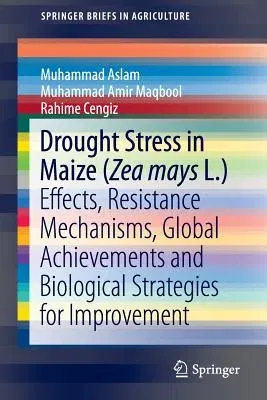This book focuses on early germination, one of maize germplasm most
important strategies for adapting to drought-induced stress. Some
genotypes have the ability to adapt by either reducing water losses or
by increasing water uptake. Drought tolerance is also an adaptive
strategy that enables crop plants to maintain their normal physiological
processes and deliver higher economical yield despite drought stress.
Several processes are involved in conferring drought tolerance in maize:
the accumulation of osmolytes or antioxidants, plant growth regulators,
stress proteins and water channel proteins, transcription factors and
signal transduction pathways. Drought is one of the most detrimental
forms of abiotic stress around the world and seriously limits the
productivity of agricultural crops. Maize, one of the leading cereal
crops in the world, is sensitive to drought stress. Maize harvests are
affected by drought stress at different growth stages in different
regions. Numerous events in the life of maize crops can be affected by
drought stress: germination potential, seedling growth, seedling stand
establishment, overall growth and development, pollen and silk
development, anthesis silking interval, pollination, and embryo,
endosperm and kernel development. Though every maize genotype has the
ability to avoid or withstand drought stress, there is a concrete need
to improve the level of adaptability to drought stress to address the
global issue of food security. The most common biological strategies for
improving drought stress resistance include screening available maize
germplasm for drought tolerance, conventional breeding strategies, and
marker-assisted and genomic-assisted breeding and development of
transgenic maize. As a comprehensive understanding of the effects of
drought stress, adaptive strategies and potential breeding tools is the
prerequisite for any sound breeding plan, this brief addresses these
aspects.


